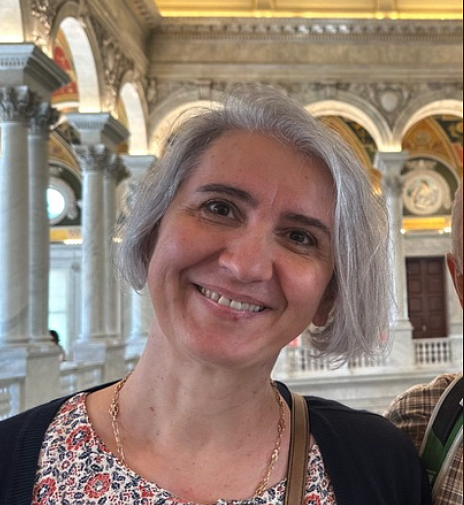
Instructor to revamp curriculum to help students better understand Italian culture
Learning a foreign language doesn’t happen in a vacuum.
“Languages are now becoming more intertwined with culture,” said Claudia Ventura, senior instructor II of Italian in the School of Global Studies & Languages.
“It’s always been that way but the emphasis in curriculum is to start with culture and learn language as the medium.”
Ventura, who has taught Italian language and culture at the UO since 2006, has been awarded a Tom and Carol Williams Instructional grant to revise the curriculum for second-year Italian students to put more emphasis on understanding Italian culture while learning the language.
To Ventura, intercultural competence means “the ability to be open to other ideas, customs and behavior, and eventually being tolerant and embracing otherness,” she said. “The tolerance to ambiguity is the first step – a lot of times you don’t understand what is front of you, but you ask and try to understand and eventually embrace it.”
Her plan is to redesign the second-year Italian curriculum to reflect the best practices of the American Council on the Teaching of Foreign Language by updating the interpretative, presentational, and interpersonal tasks with authentic multi-media material and compelling intercultural and interdisciplinary reflections.
By fostering intercultural competence, the revised curriculum helps to break down stereotypes and unconscious biases that can lead to discrimination, Ventura said.
It also incorporates an interdisciplinary approach with activities that offer links to art history, environmental issues, tourism studies, global business, interior design, architecture, family and human studies, law and social justice.
She plans to revise the curriculum by developing activities based on relevant, authentic material licensed under Creative Commons, and assembling material from her own personal archive, such as photos, videos, and audio interviews, to replace items restricted by copyrights as well as outdated material.
The changes will boost students’ motivation and engagement because it prepares them to live and work in a globalized world as “intercultural speakers.”
Students have pre-conceived notions about Italian culture, based on what they see in popular culture, such as it being very traditional and very Catholic and that everyone belongs to large families, “but Italy has changed a lot,” she said.
In second-year Italian, students delve into issues changing modern Italian society, such as smaller families, declining marriages, LGBTQ issues, an aging population and low birth rate. These changes carry many repercussions, economically and socially, she said.
With her grant funds, Ventura is planning a trip to the city of Naples to gather material for a unit on music. “Naples has always been a city of music,” she said.
She plans to start with the classical repertoire and examine how it developed into different branches of music, including folk, jazz and blues in the 20th century.
“Now it’s more hip-hop with a lot of raps,” she said. “It is interesting for students because it’s easier to rap in Neapolitan dialect than Italian. Our (Italian) language is so phonetic – it's good for opera, not rapping.”
“We have so many dialects and collaborations in music. Naples has had so many influences, from North Africa to the United States,” she said. “I want to record and interview people and show the students this old and new reality.”
By Tim Christie, Office of the Provost Communications
